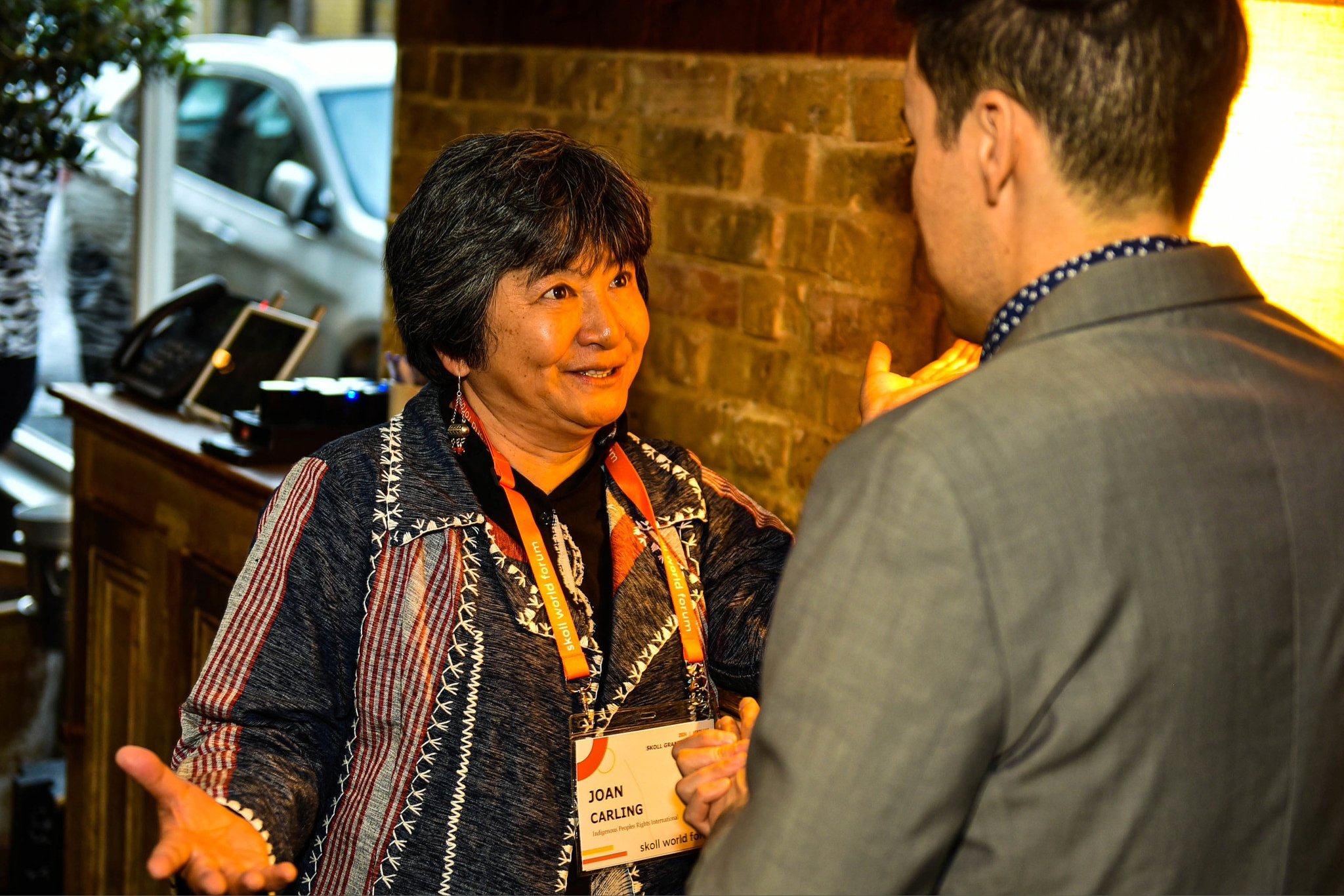Skoll World Forum Shines Spotlight on Climate Change and Indigenous Rights
Philanthropists and activists at the Skoll World Forum are talking about climate change, including how it intersects with the rights of indigenous people, and how to encourage more climate action for everyone.

Joan Carling at Branca SWF2024 Skoll World Forum 2024
It’s a bitter irony of climate change that those who have contributed the least to it – like indigenous people in the mountains of the Philippines, or community entrepreneurs in the Brazilian Amazon – often suffer most from its effects. They are also largely shut out of global policy making discussions about how to reduce carbon emissions and mitigate its effects.
Their voices are being heard this week, though, at the Skoll World Forum, an annual gathering at the University of Oxford that brings together nearly 1,500 social entrepreneurs, philanthropists, policy makers and activists to tackle some of the world’s biggest problems. The specter of climate change looms large across the agenda of the forum, which began Tuesday and runs through Friday.
Whether in the Philippines, Canada, Brazil or elsewhere, indigenous people “have the smallest carbon footprints and have contributed the least to climate change,” said Joan Carling, executive director of Indigenous Peoples Rights International. “But they are on the front lines of climate impact.”
Carling traveled from the Philippines to the forum this week to make sure those peoples’ voices are heard.
“Climate change decisions that are made at the global level have serious implications for people on the ground,” Carling said. “We need broad support and to have a broad partnership and collaboration with other actors, with donors, with other NGOs and indigenous organizations around the world.”
Many of the forum’s delegates come prepared with potential solutions. Barbara Brakarz, executive director of Conexsus, a Brazilian nonprofit that works with community enterprises built around sustainable agriculture and other ways to sustainably use the resources of the Amazon, says she is particularly excited about growing interest in bioeconomy, a term that encompasses sustainable agriculture as well as sustainable forestry and aquaculture.
“There’s a lot of talk of bioeconomy as a potential alternative to deforestation,” she said. “We’re here to connect with funders and to engage with different coalitions and organizations that are working around climate issues.”
Pip Wheaton, a fellow with Ashoka, a nonprofit that works with social entrepreneurs around the world to help them effect positive change, says working at the “super grassroots” level, whether fishing communities on the western coast of Africa or social activists in Birmingham, UK, enables the organization to “see things that maybe don’t get attention elsewhere.”
One recent project explored why, with all the talk about climate change, individuals haven’t taken more concrete action around climate change.
“We have more solutions to climate change than ever before; more people care about climate than ever before; and science has given us a better understanding of what’s at stake,” Wheaton said. “Yet we’re still not seeing people acting definitively, in the areas where they have influence,” such as at their workplace.
To that end, one goal of her participation in the Skoll World Forum will be finding ways to encourage people to “embed climate change into their decision making” in those areas, she said.
Carling, who is attending the forum for the second time, said she finds the gathering a useful way to engage peers from around the globe on indigenous peoples’ rights and the global problems that affect them, especially around climate change.
“We want to partner with all those who genuinely want to advance social equity, to protect the environment, to build solidarity,” she said. “And to make a better world for everyone.”
Most of the Skoll World Forum sessions are available for online viewing. Register here.
<< Updates from the Skoll World Forum
